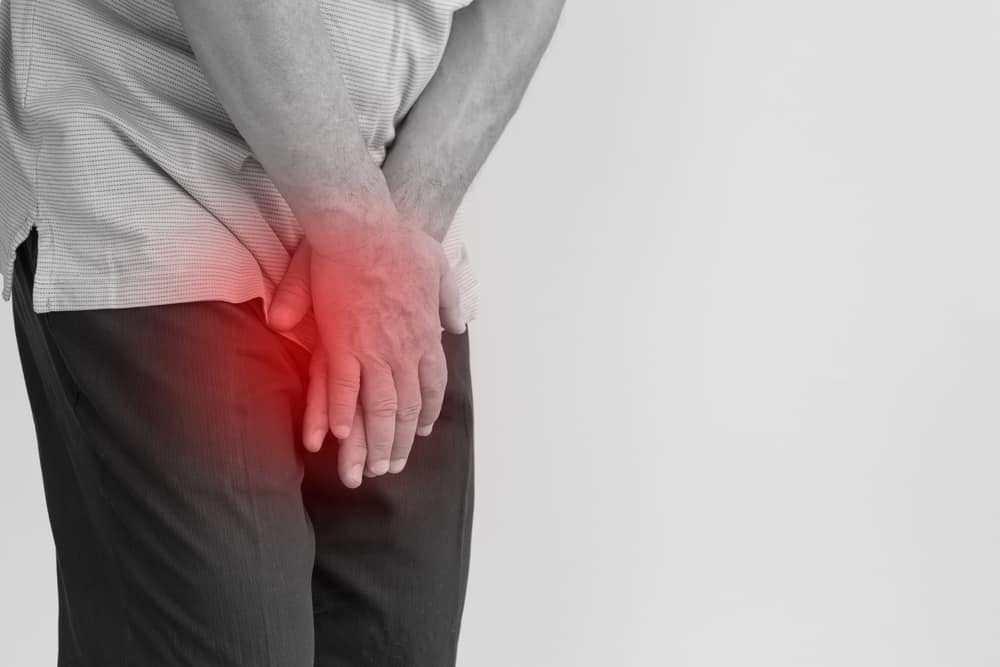Contents:
- Medical Video: Radical Prostatectomy for Basic Teal Prostate Cancer | Prostate Cancer Staging Guide
- Some myths of prostate cancer that have been denied by the medical world
- 1. Prostate cancer is only experienced by older men
- 2. Frequent ejaculation triggers prostate cancer
- 3. Rarely make love increase the risk of prostate cancer
- 4. Men who have undergone a vasectomy have a high risk of prostate cancer
- 5. Prostate cancer cannot be prevented or cured
Medical Video: Radical Prostatectomy for Basic Teal Prostate Cancer | Prostate Cancer Staging Guide
Many myths of prostate cancer circulating in the community are often misleading. The more you believe in the myths that have not been scientifically proven, the more difficult it is to find out the real facts. That is, this actually minimizes the chances of your recovery from the cancer itself.
To straighten out the wrong information, here are variousthe prostate cancer myth that you don't need to trust anymore.
Some myths of prostate cancer that have been denied by the medical world
1. Prostate cancer is only experienced by older men
Wrong. Prostate cancer is indeed rare at the age of under 40 years, because one of the risk factors is indeed old age. However, it is possible for productive age men to get prostate cancer.
The risk of a man getting prostate cancer at a young age can increase because it is influenced by an unhealthy lifestyle, such as the habit of staying up late, rarely exercising, and overweight due to poor diet. Prostate cancer cells that appear at productive age can appear only about the size of walnuts, and grow larger and cause a variety of complaints as we get older.
Therefore, men must always be aware of risk factors and detect symptoms of prostate cancer early.
2. Frequent ejaculation triggers prostate cancer
Wrong. Men who often ejaculate actually have a lower risk of developing prostate cancer. Research conducted by the Harvard's Health Professionals shows that men who ejaculate 21 times or more a month have a 33 percent lower risk of prostate cancer than men who only ejaculate four to seven times a month.
The prostate is the organ responsible for producing semen. The less you ejaculate, the more carcinogens accumulate in sperm and / or semen.
3. Rarely make love increase the risk of prostate cancer
Having sex regularly can actually avoid you from cancer that is frightening for these men.
Reported by the Daily Mail, sexual activity has a protective effect against prostate cancer. The prostate functions to compile 30 percent of semen or sperm and to secrete semen.
When a man often has sexual relations, it means a lot of semen is coming out. The discharge of semen can be one of the body's mechanisms to cleanse the prostate from substances that are not needed and may cause disease in the long run.
4. Men who have undergone a vasectomy have a high risk of prostate cancer
Wrong. This myth caused doubts in most men in deciding for a vasectomy. Feared, this permanent contraceptive method causes men more at risk of prostate cancer.
This assumption originated from research that stated that vasectomy increases the risk of prostate tumors by 10 percent and a 20 percent risk of fatal prostate cancer. However, after further investigation by a variety of newer studies, this risk is not proven.
One of them is research from the University of Toronto involving almost 2,000 men who underwent a vasectomy. The result was only found 50 men who died of prostate cancer.
That is, a vasectomy is not proven to increase a man's risk of prostate cancer.
5. Prostate cancer cannot be prevented or cured
Wrong. The development of this myth actually worsens the situation. In fact, cancer is said to be a lifestyle disease. Preventing prostate cancer can be done by adopting a healthy lifestyle and keeping away from risk factors.
You are advised to avoid foods high in fat and red meat. In addition, you can also consume tomatoes and soybeans and diligently exercise to inhibit the growth of cancer cells.












